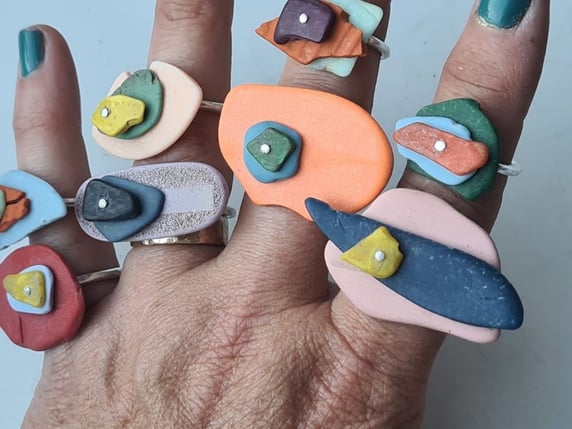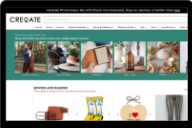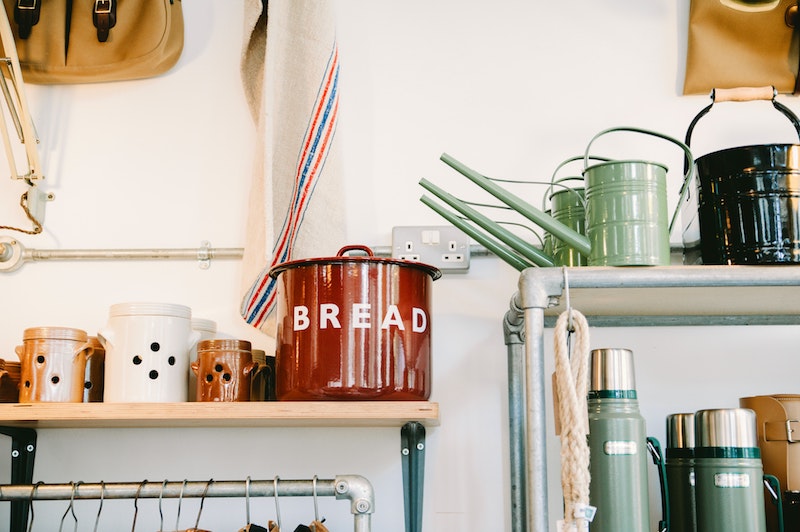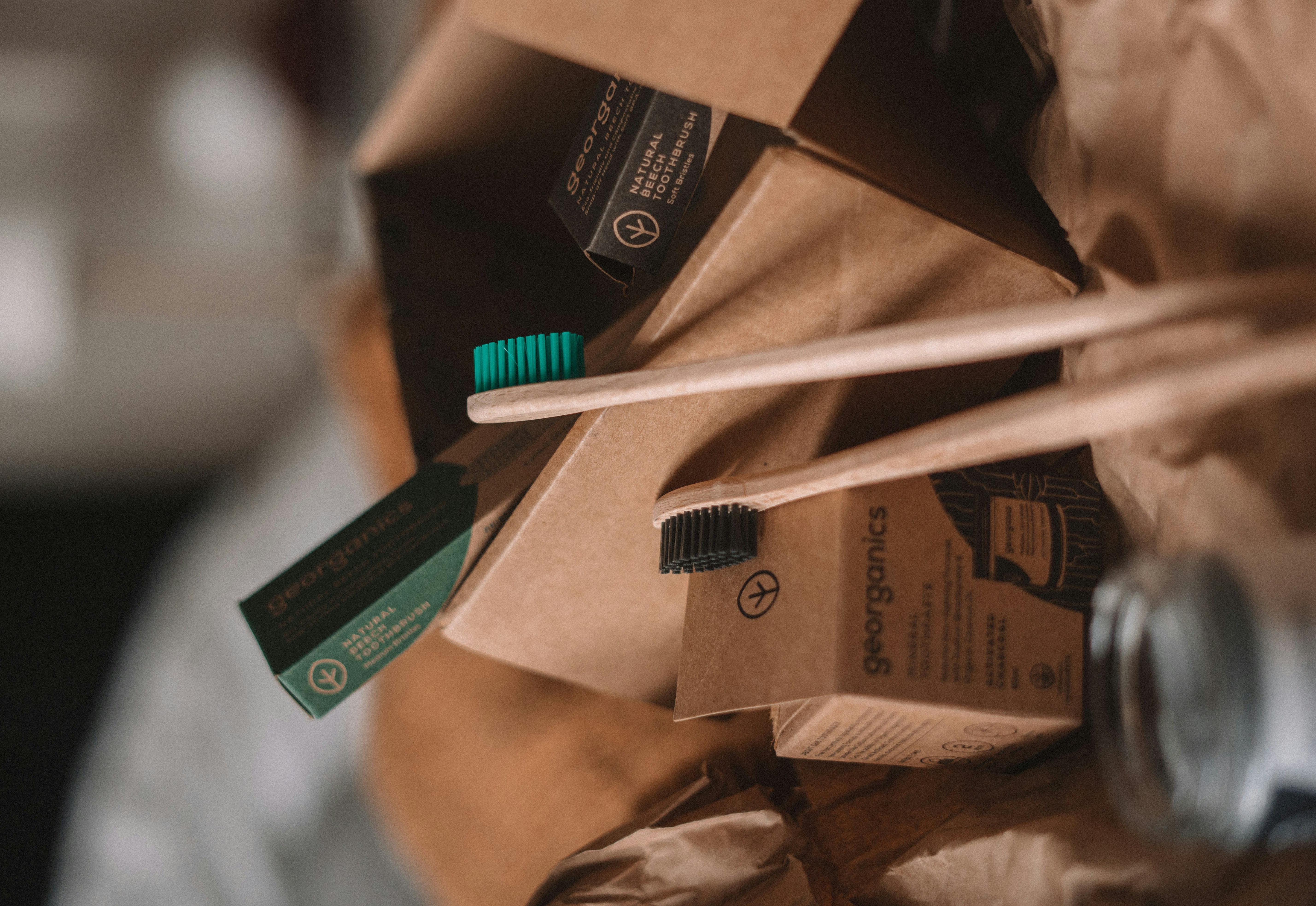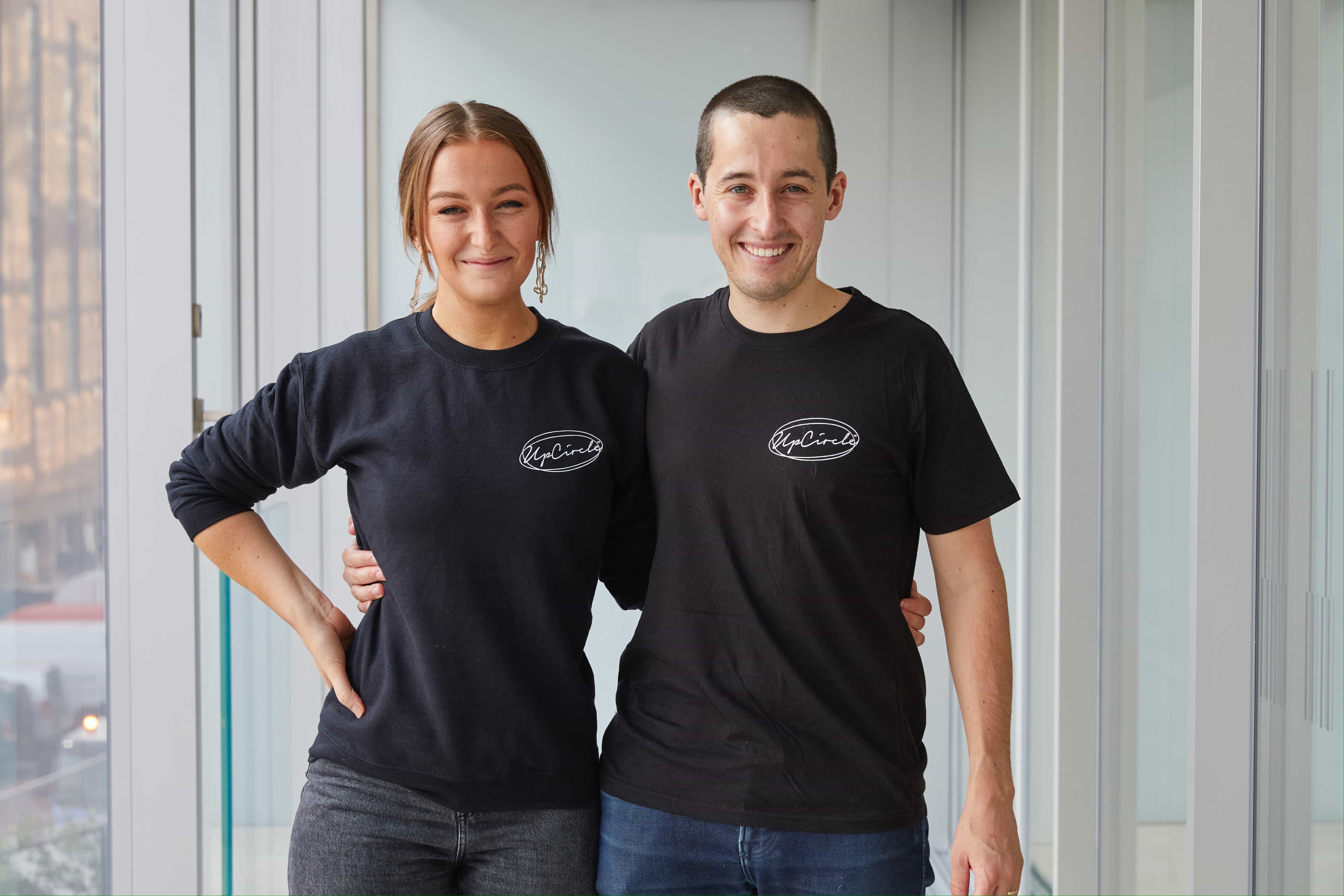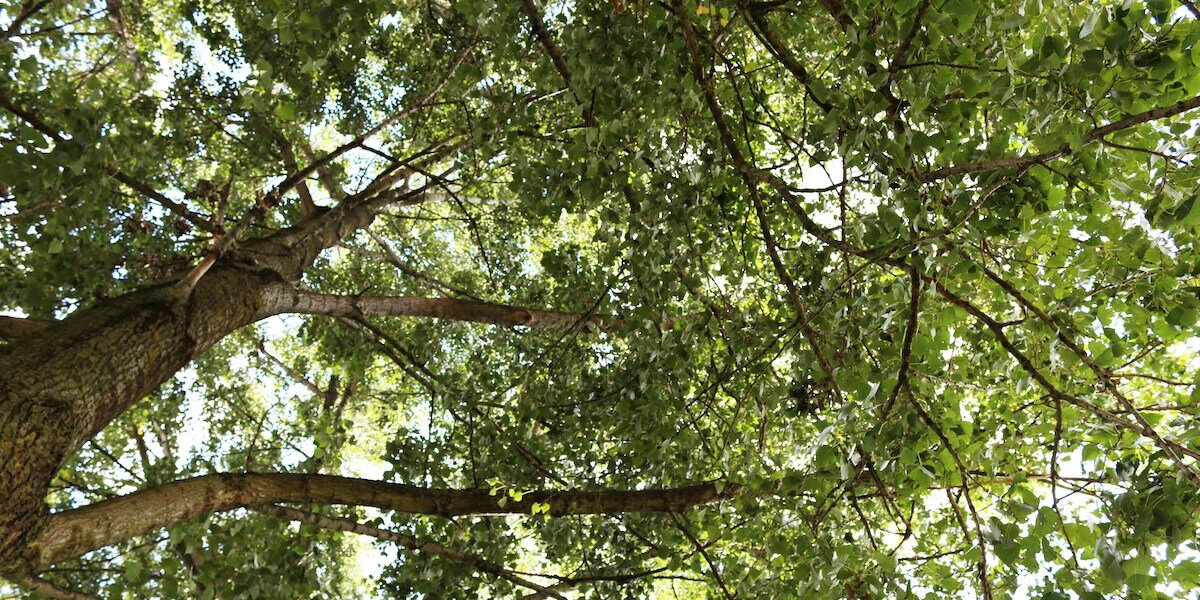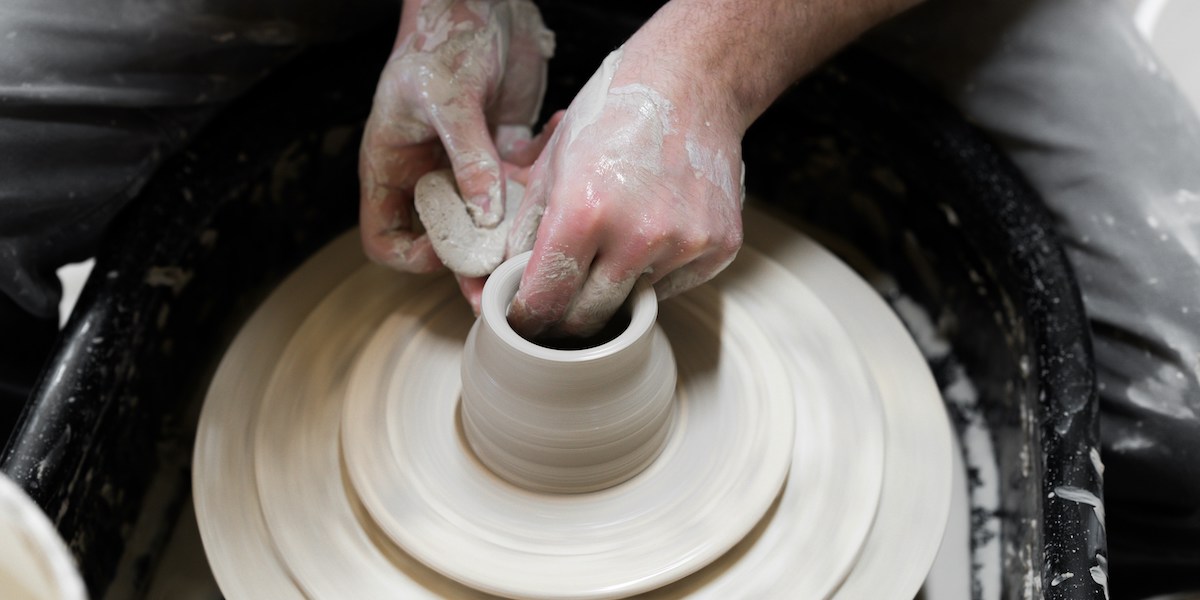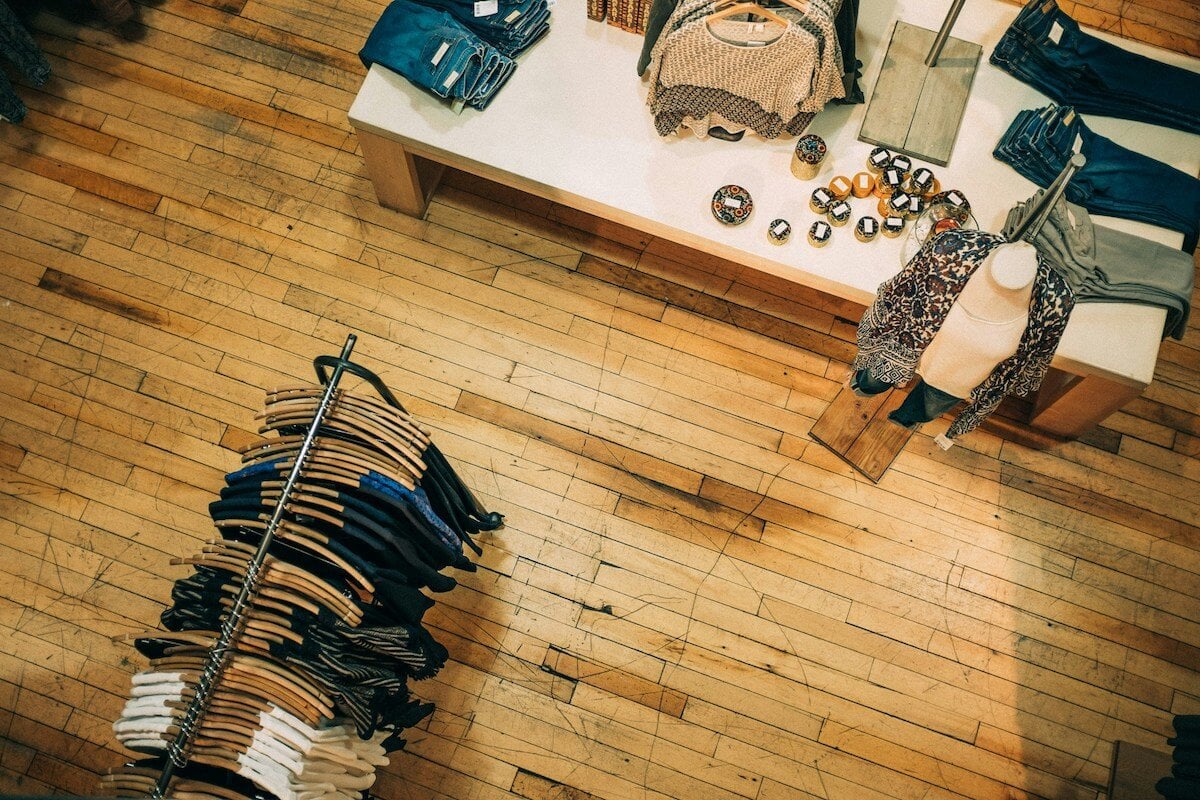-1.jpg?width=764&name=s-o-c-i-a-l-c-u-t-7KkDiSs5UdQ-unsplash%20(1)-1.jpg)
For several years now, sustainability has been a popular buzzword in business, marketing, and wider culture, as the climate crisis looms ever more heavily on the public conscience. But, what does it actually mean to be a sustainable business? And as a marketer or business owner, how do you put your money where your mouth is, and turn words into actions when it comes to running a more sustainable business?
On this page
- What is Sustainability?
- What Does It Mean to Be a Sustainable Business?
- Adapting for an Uncertain Future
What is Sustainability?
In 1987, the United Nations Brundtland Commission defined sustainability as:
‘meeting the needs of the present without compromising the ability of future generations to meet their own needs.’
Put simply, sustainability is about developing better practices both in business and in life, to ensure a better future for tomorrow’s generations. This might look like replenishing and nurturing the resources we have at an equal rate to which we use them, like tree planting initiatives or upcycling used materials to extend their lifespan to create a circular economy. In other words, seeking equilibrium in the things we give, and take.
Over-consumption of resources and wasteful attitudes still pervasive in today’s society have seen a worrying decline in our natural resources. Whether that’s deforestation, overfishing, and our over-dependence on plastic leading to the Great Pacific Garbage Patch, the issue of microplastics in our oceans and drinking water, as well as masses of product ending up in landfill.
In 2021 alone, approximately 2.5 million metric tons of plastic packaging waste was created by households in the United Kingdom. Clearly, something needs to be done.
What Does It Mean to Be a Sustainable Business?
While the above statistic refers to household waste, the onus cannot be placed solely on the consumer. It is the responsibility of brands and businesses to offer more sustainable solutions, since the lifespan of a product from factory to landfill is all interconnected.
This is where the ‘Triple Bottom Line’ comes in. Though known by different names and terms, you may have heard of ‘People, Planet, Prosperity’, or otherwise similar initiatives that focus on Social, Environmental, and Economic as a three-part framework to evaluate business performance from a broader perspective. Recognising that all three pillars are connected can help drive business value and growth without detrimental effects on people or the planet.
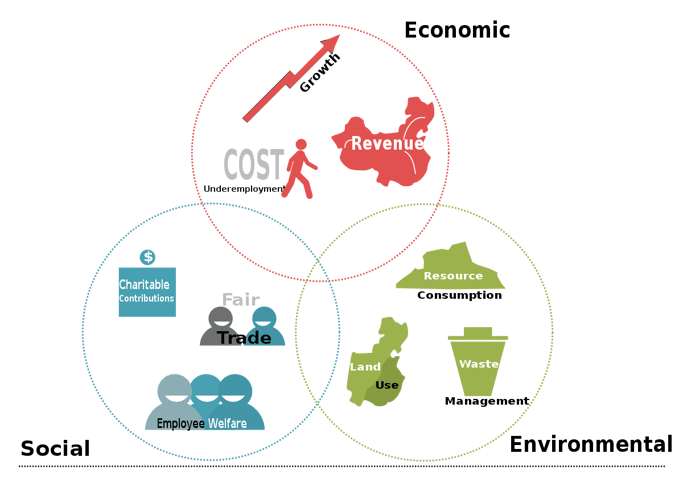
So, as an independent business owner, what can you do? Well, on a practical level, you can evaluate existing practices in your business, and see how they can be adapted to more sustainable alternatives.
Sustainable Packaging
For example, luxury chocolate brand Montezuma’s completely overhauled its product packaging. As of 2020, every piece of packaging on every item they sell is either recyclable, biodegradable or compostable. This includes everything from the wrappers on their chocolate bars, to the ink and stickers they use. ‘It’s been a mammoth task and we are super proud of what we’ve achieved. In fact, we believe we’re the first chocolate company in the UK to be able to make this claim on our entire range and across all packing materials.’ says Montezuma’s Managing Director Bruce Alexander.
‘All our packaging is now only sourced from the UK and Europe, despite cheaper sources being available from countries further away. This supports our drive to become carbon neutral. We are also now working with our suppliers to encourage them to review their packaging principles and swap their non-recyclable packaging to fully recyclable materials.’
Recycling & Reusing Materials
When most people think of eco-initiatives, recycling is usually one of the first to come to mind. So, how does one go about implementing recycling practices into a profitable business?
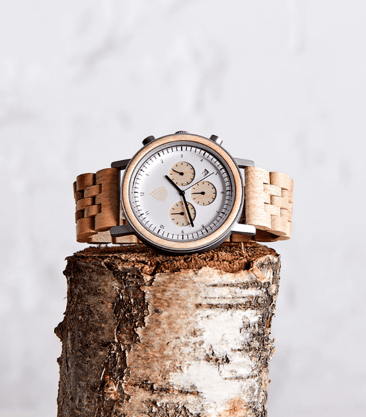
The Sustainable Watch Company stocks a stunning collection of handcrafted timepieces, made using recycled natural wood furniture. With a lower carbon footprint than mass-produced alternatives, their elegant vegan watches are kind to the planet, and make unique gifts.
Sarah Drew Jewellery shows us how it’s done with her beautiful pieces crafted from treasures she finds on her beachcombing walks. Recycling everything from sea glass and pebbles, to washed-up plastic and fishing nets, Sarah combines her finds with zero-waste eco-silver and brass to conjure stunningly unique jewellery.
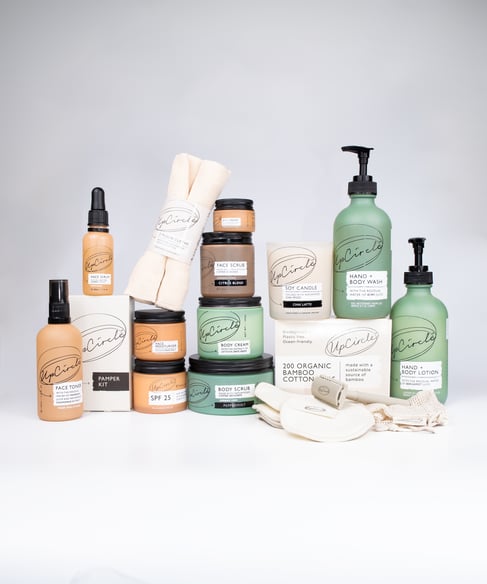
Meanwhile, remember when we mentioned the ‘circular economy’ before? Skincare brand UpCircle lives it. Their mission: to leave the world better than they found it by transforming used ingredients into natural, organic beauty products. Among their upcycled ingredients:
- Blueberry extract — a by-product of the blueberry juicing industry
- Date seeds — a by-product of date farming
- Fruit waters and stones — a by-product of the juicing industry
- Maple bark extract — a by-product of the wood industry
- Chai spices — a by-product of chair syrup
- Chamomile stem — a by-product of the tea industry
- Argan shell powder — a by-product of the argan oil industry
- Olive stone powder — a by-product of olive oil production
- Coffee ground — sourced from their ever-growing network of local cafes!
As well as upcycling their ingredients, UpCircle also offers a refill scheme. This means customers can endlessly reuse their glass and aluminium packaging and save money while they do.
Identifying Opportunities
It’s up to your brand to identify the areas in which your business can adapt. Perhaps your supply chain could do with auditing to ensure fairer business practices. Could you begin to use recycled materials as part of your packaging? How, as a business, can you reduce waste?
Sometimes, it can help to start with smaller initiatives. A lovely way to reduce impact and give back to the planet, for example, is to align your business with a cause or charity that aligns with your values. Ecologi allows businesses to plant a tree with every order, and there are many other organisations out there that can help with carbon offsetting your business.
Sustainable Certifications
Certifications recognise the work you put in to making your business more sustainable, and can also help you find your audience more easily, so they can support you as you do more good.
We’ll take you through some of the top commercial sustainability certifications to consider for your business:
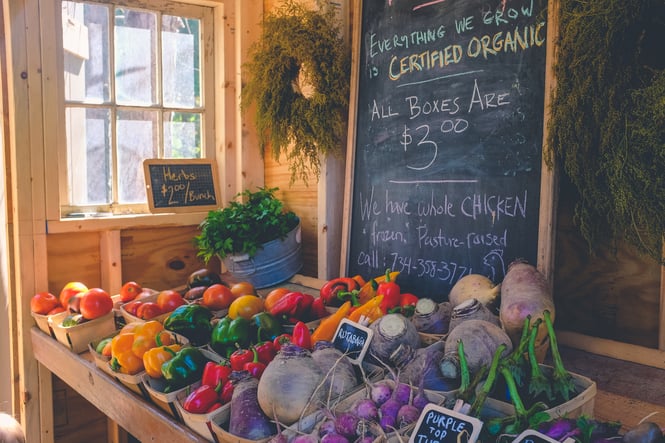
Organic: In the UK, there are government-mandated rules businesses must follow in order to market or label their products as ‘organic’, ‘bio’ or ‘eco. These rules stipulate that at least 95% of a product’s agricultural ingredients must be organic, in order to be listed as such. Brands must also register with a UK organic control body to be certified organic. Similarly, the US has the USDA official organic label.
Soil Association: Speaking of organic control bodies, Soil Association is one of the best known, with its organic symbol appearing on 70% of organic products in the UK. They also offer many more independent endorsements, accredited schemes and inspections.
B Corps: Certified B Corps (B Corporations) are for-profit businesses that ‘meet the highest standards of verified social and environmental performance, public transparency, and legal accountability to balance profit and purpose’. Essentially, they’re businesses that are doing as much good as they are making a profit. Read our guide to B Corps here to learn more.
Leaping Bunny Program: With one of the most recognised logos for distinguishing cruelty-free brands, the leaping bunny is known far and wide for its rigorous standards. Not all cruelty-free brands are certified, but doing so certainly makes it easier for discerning consumers to find you, whether via the Leaping Bunny app, or the many independent websites featuring cruelty-free lists.
The Good Business Charter: An accreditation of companies and charities that measures behaviour across 10 components, including but not limited to: Environmental Responsibility, Ethical Sourcing, Employee Well-being, Fair Pay & Contracts, and more. Applications take place online, and take less than an hour to complete. Get on it!
ISO 4000: Internationally recognised, the ISO 14000 frameworks identify environmental management systems within companies, regardless of sector. Costs depend on the size of the organisation, with renewal every 3 years.
Remember that certification isn’t always necessary, and can sometimes be more of a ‘nice-to-have’ for smaller organisations. With this in mind, whether you apply for all or none of the certifications, it’s always more about the actions you’re taking to improve. For example, you don’t need to be certified to audit your supply chain, or update your packaging materials to recyclable materials. There are lots of things you can do before you aim for the badges and accolades, and these are some of the actions that make up the foundation of a sustainable business.
Adapting for an Uncertain Future
Consumers are becoming increasingly more aware and discerning when it comes to sustainable initiatives, and are more likely to hold brands accountable for their shortcomings. So, the best thing to do as a business is to be as transparent as possible about your journey. What you’re doing to change now, and where you’re aiming to go.
In a YouGov survey conducted in 2021, it was found that up to 57% of UK consumers would be willing to pay more for sustainable products, with up to millennial consumers making up 63% of respondents, and 69% being Gen Z. While generally speaking, younger generations have less disposable income to spend, they’re more likely to spend the capital they do have on green options.
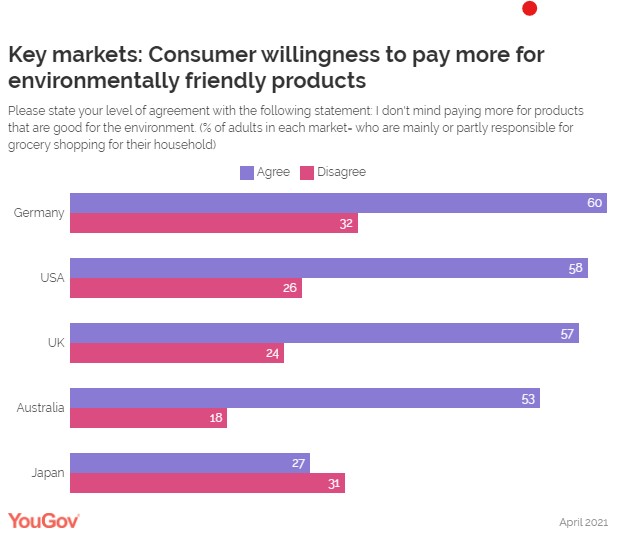
Thanks to the coordination of social media, consumers are further empowered to expect more from the brands they buy from. So, don’t get left behind. Short-term thinking stifles innovation, and with the climate crisis looming large, this isn’t something we can afford to lose. Business as usual is a death sentence to forward-thinking brands, so remain agile and remember that refusing to adapt to the great issues of our time may see your business being overlooked for more sustainable alternatives. This in turn will make its way up the supply chain and B2B business.
Remember, there is no ‘how-to’, just what works and makes sense for your business. Need some more inspiration? We've rounded up 12 eco-friendly brands for you to read and learn more about here.
Not registered with CREOATE yet? Sign up now and start shopping wholesale with us today.
Read articles:
Browse Popular Categories at CREOATE: Wholesale Jewellery | Wholesale Gifts | Wholesale Stationery | Wholesale Beauty Products | Wholesale Mugs | Wholesale Homeware | Wholesale Pet Supplies | Wholesale Gourmet Food | Wholesale Garden & Outdoor | Wholesale Baby & Kids Products
Browse Trending Collections on CREOATE: Wholesale Halloween | Wholesale Mother's Day Gifts | Wholesale Father's Day Gifts | Wholesale Valentine's Day Gifts | Wholesale Spiritual Supplies
>> View all


